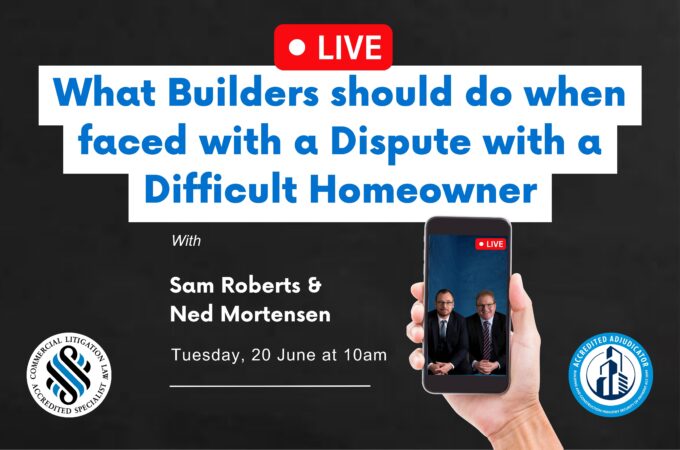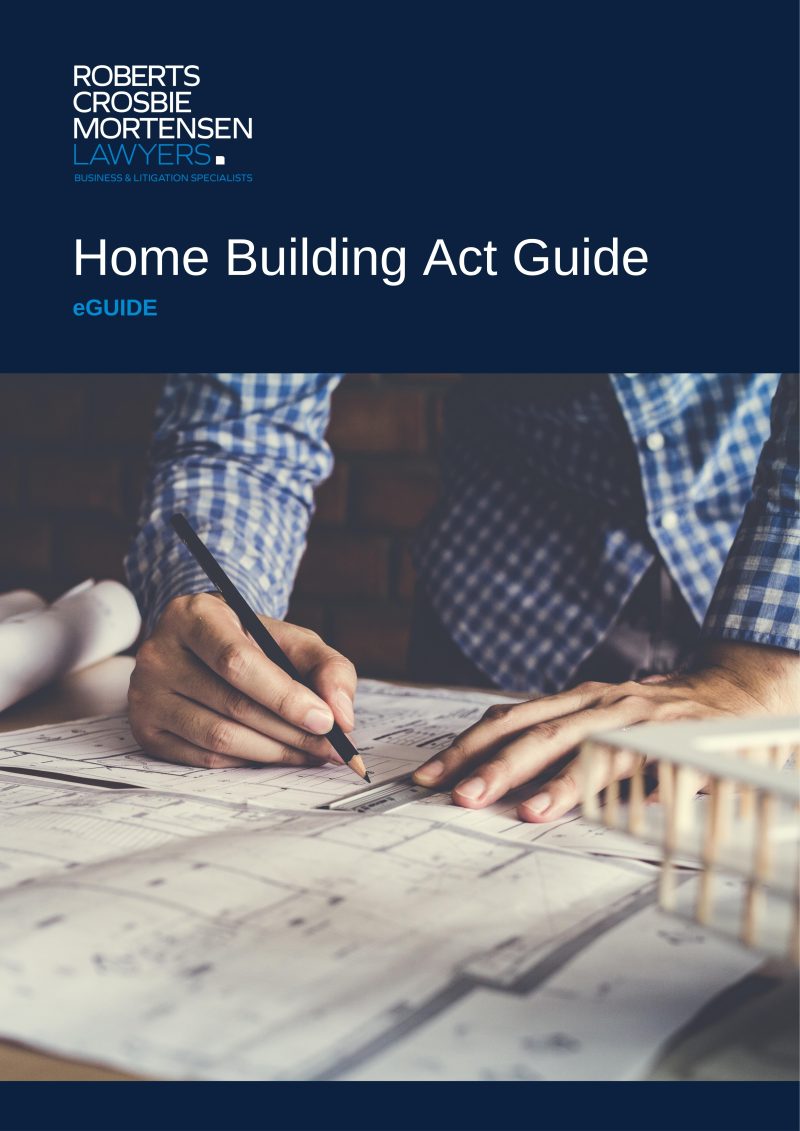When a builder carries out residential building work, their work is covered by the statutory warranties which apply under the Home Building Act. The warranties include:
- that the work will be performed with due care and skill,
- that the work will be in accordance with any plans and specifications set out in the contract,
- that all materials supplied will be suitable for the purpose for which they are to be used, and
- that the work will be done in accordance with, and comply with, the Home Building Act and any other law.
Home owners have a time limit for commencing proceedings for a breach of statutory warranty, being six (6) years from completion for a major defect, and two (2) years in any other case. If the homeowner first becomes aware (or ought reasonably to have become aware) of the breach within the last six (6) months of the warranty period, then proceedings may be commenced within a further six (6) months after the end of the warranty period.
But what happens when a homeowner is out of time to commence proceedings?
Did you know that whilst the statutory warranties are the primary source of obligations for builders, The Australian Consumer Law may also apply?
Under The Australian Consumer Law, businesses must guarantee products and services they provide which are valued under $40,000.00, or which exceed that amount but are normally bought for personal household use. Like the statutory warranties under the Home Building Act, these guarantees are automatic and cannot be excluded by your contract.


























